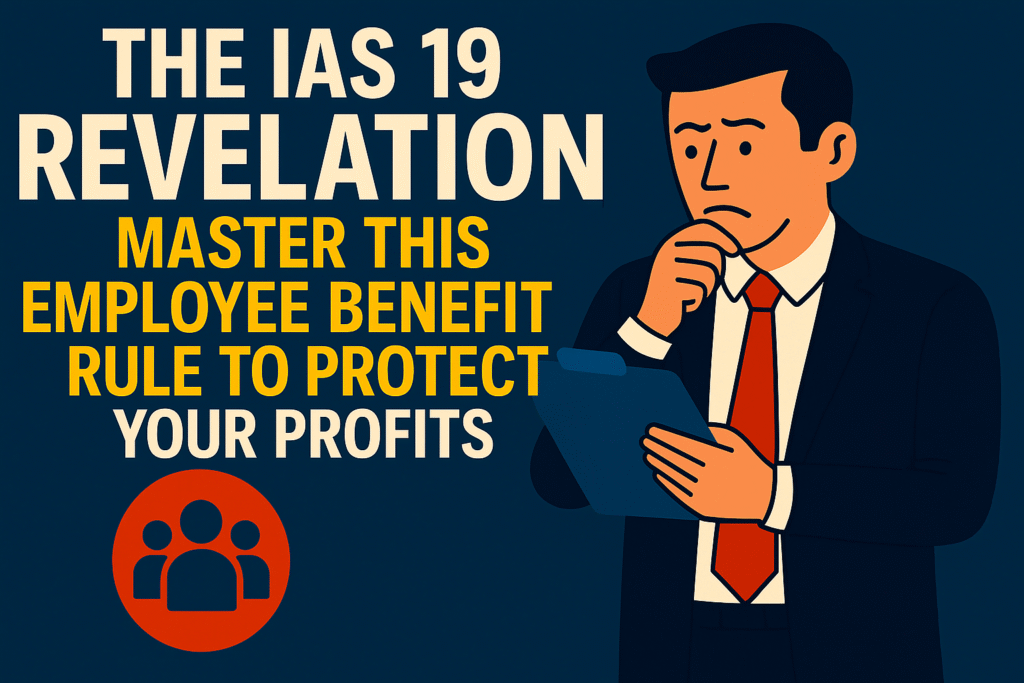The IAS 19 Revelation: Master This Employee Benefit Rule to Protect Your Profits

A company just discovered their “simple” employee bonus plan wasn’t so simple. The impact? A $5 million charge to previous years’ profits. All because they misunderstood one paragraph in IAS 19.
The Vesting Trap
Here’s what catches everyone: IAS 19 says you recognize employee benefit costs when the employee provides service—not when you pay them. Obvious for salaries, right? But what about that retention bonus payable in three years?
The scenario that breaks brains: Your company offers key employees a $300,000 bonus if they stay for three years. Most accountants think: “Record $300,000 in year three when we pay it.”
IAS 19 says: “Wrong! Record $100,000 each year as they earn it.”
It Gets Worse
What if employees might not stay? What if the bonus depends on company performance? Now you’re estimating:
- How many will stay (attrition rates)
- Whether targets will be met (probability assessment)
- The time value of money (if material)
Real example: A tech startup promised 50 employees bonuses tied to a successful IPO within five years. They recorded nothing, thinking it was too uncertain. Year 4: IPO looks likely. Suddenly, they need to catch up four years of expenses. Investors were not happy.
The Sneaky Ones
Watch out for:
- “Signing bonuses” that are really retention tools
- Sales commissions paid annually but earned monthly
- Profit shares that vest over time
- Even some “discretionary” bonuses that create implicit obligations
The Measurement Maze
Don’t forget discounting! A $1 million obligation payable in 5 years isn’t worth $1 million today. At a 5% discount rate, it’s worth about $783,500. Each year, you’ll record both service cost AND interest cost as the discount unwinds.
Your Takeaway as an Accountant
Read every employee compensation plan like a lawyer. Ask: “When is this really earned?” not “When do we pay it?” Create a spreadsheet tracking each plan’s vesting schedule, probability adjustments, and discount rates. Review it quarterly, not annually.
Remember: In accounting, surprises are rarely good. The best time to find a problem? Before it finds you.
Master the complexities with fellow professionals at ACCOUNTANT MINDSET—where we tackle the tough stuff together.
